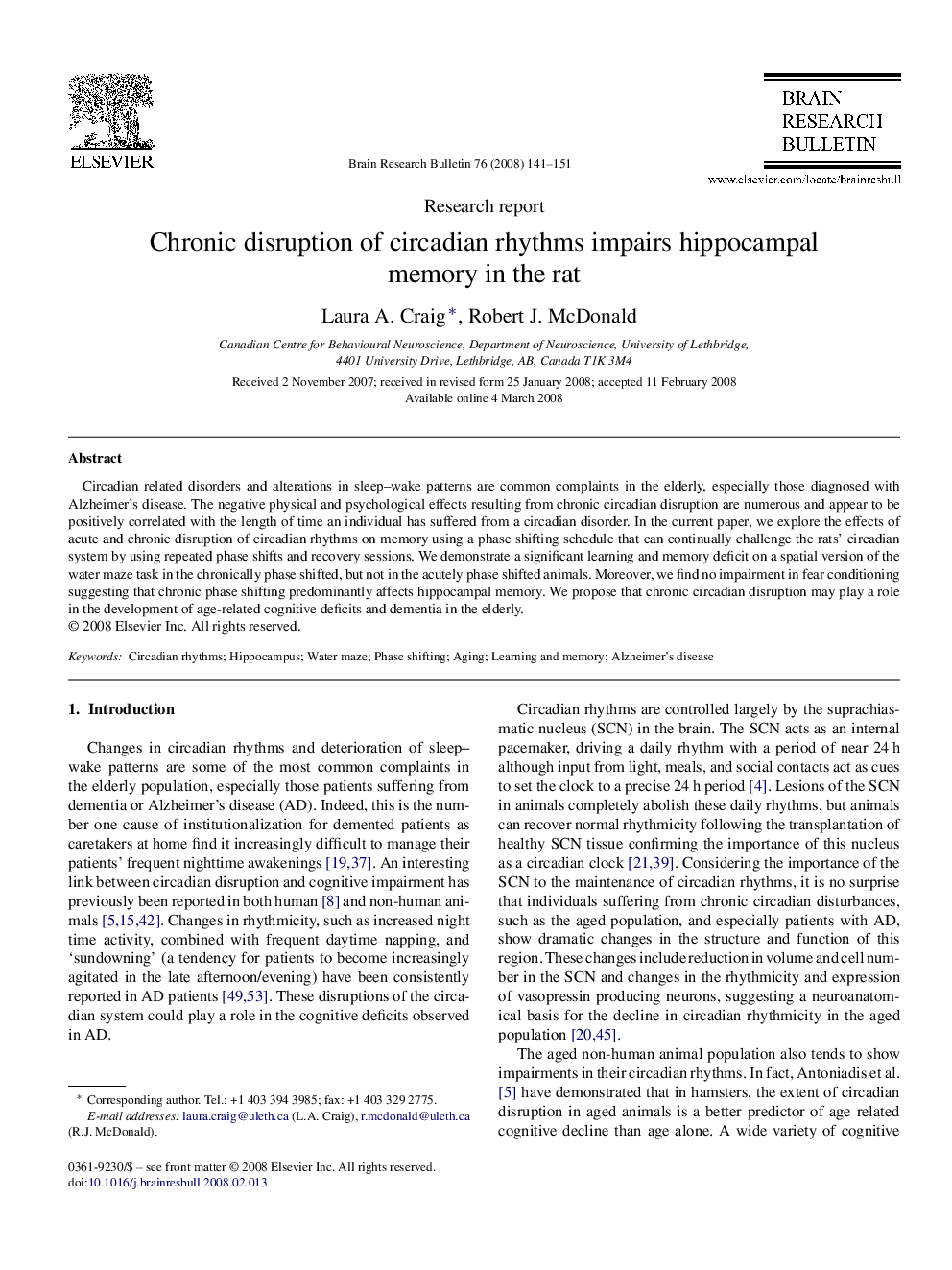| Article ID | Journal | Published Year | Pages | File Type |
|---|---|---|---|---|
| 4319772 | Brain Research Bulletin | 2008 | 11 Pages |
Circadian related disorders and alterations in sleep–wake patterns are common complaints in the elderly, especially those diagnosed with Alzheimer's disease. The negative physical and psychological effects resulting from chronic circadian disruption are numerous and appear to be positively correlated with the length of time an individual has suffered from a circadian disorder. In the current paper, we explore the effects of acute and chronic disruption of circadian rhythms on memory using a phase shifting schedule that can continually challenge the rats’ circadian system by using repeated phase shifts and recovery sessions. We demonstrate a significant learning and memory deficit on a spatial version of the water maze task in the chronically phase shifted, but not in the acutely phase shifted animals. Moreover, we find no impairment in fear conditioning suggesting that chronic phase shifting predominantly affects hippocampal memory. We propose that chronic circadian disruption may play a role in the development of age-related cognitive deficits and dementia in the elderly.
